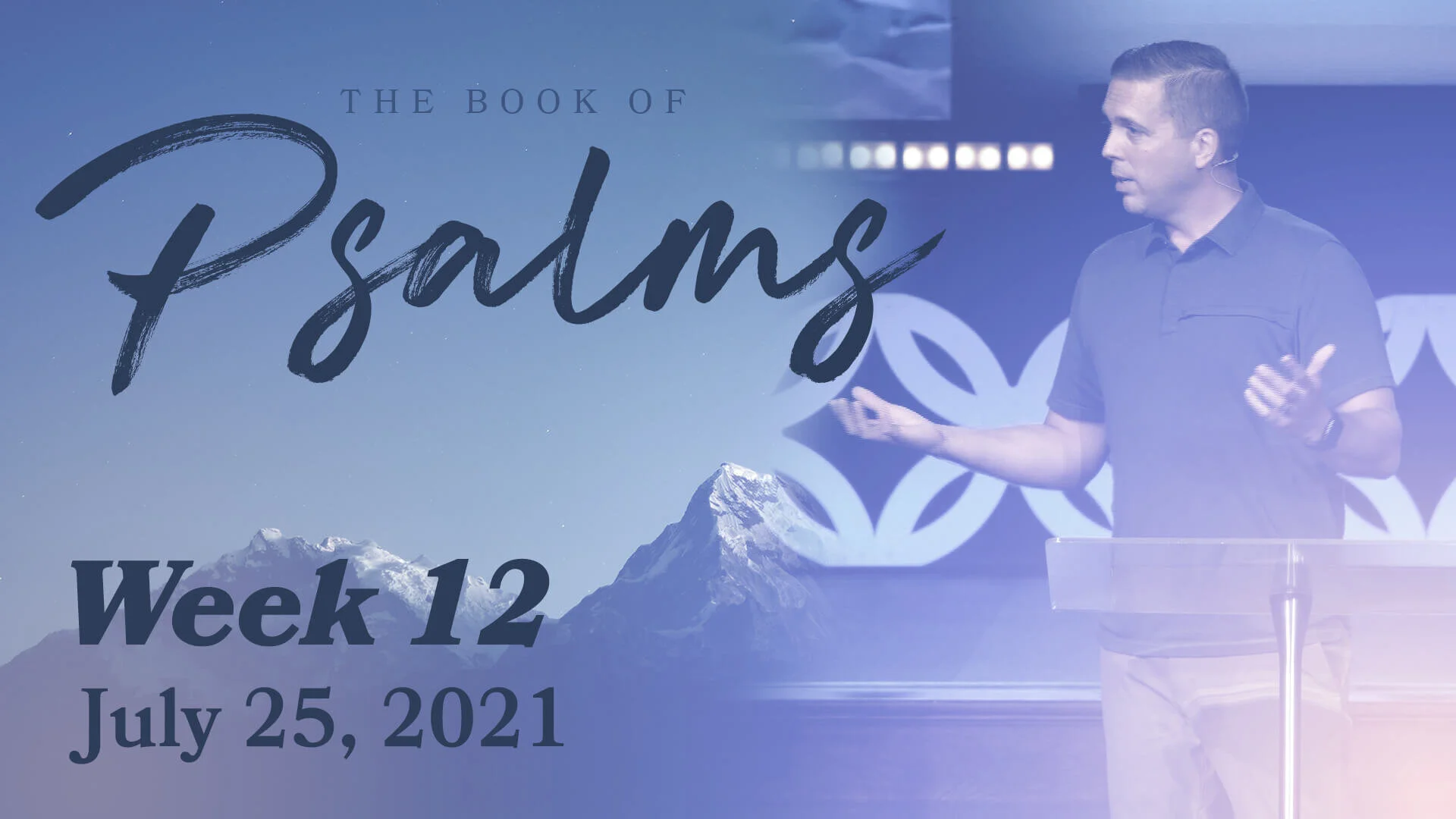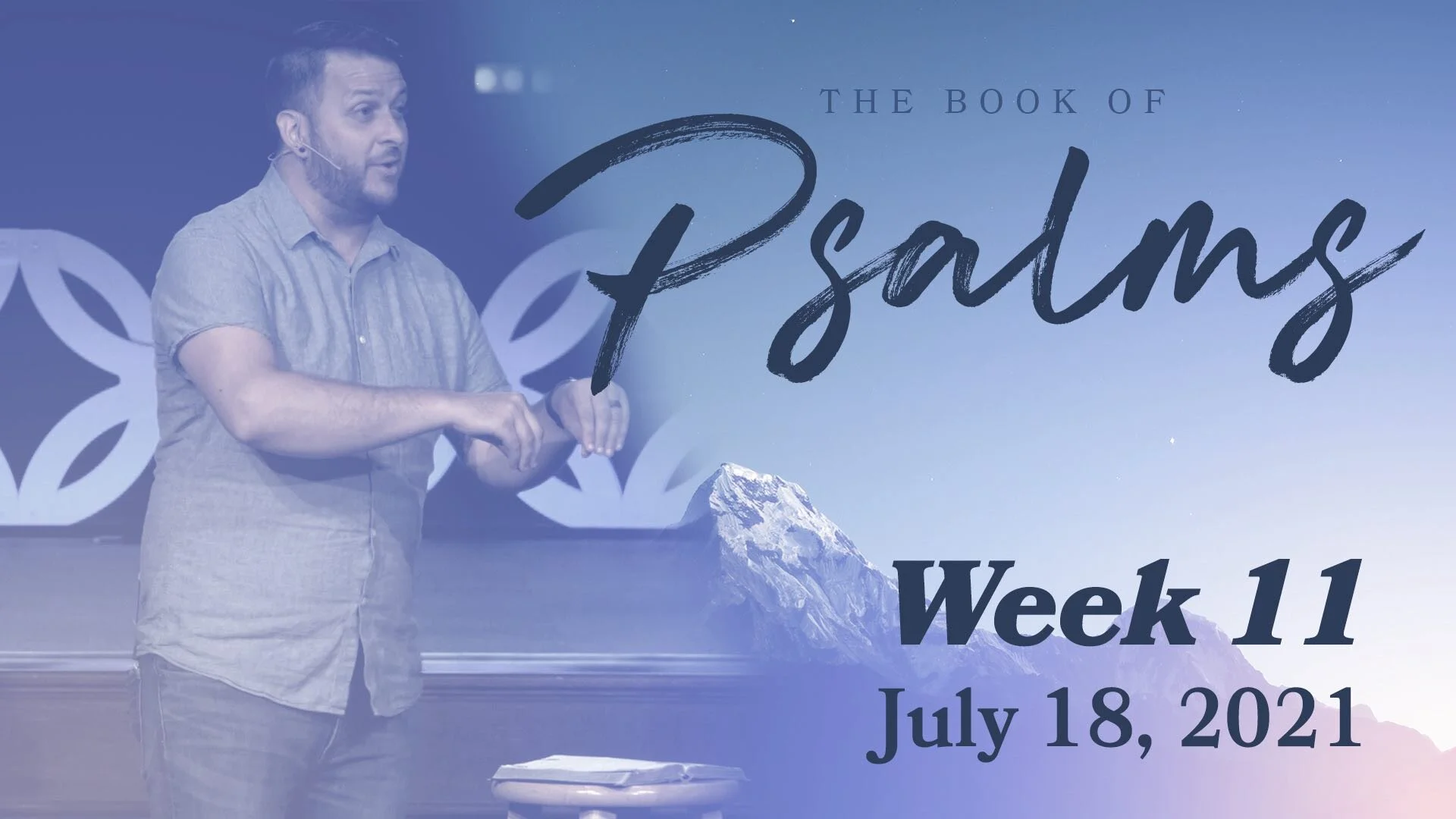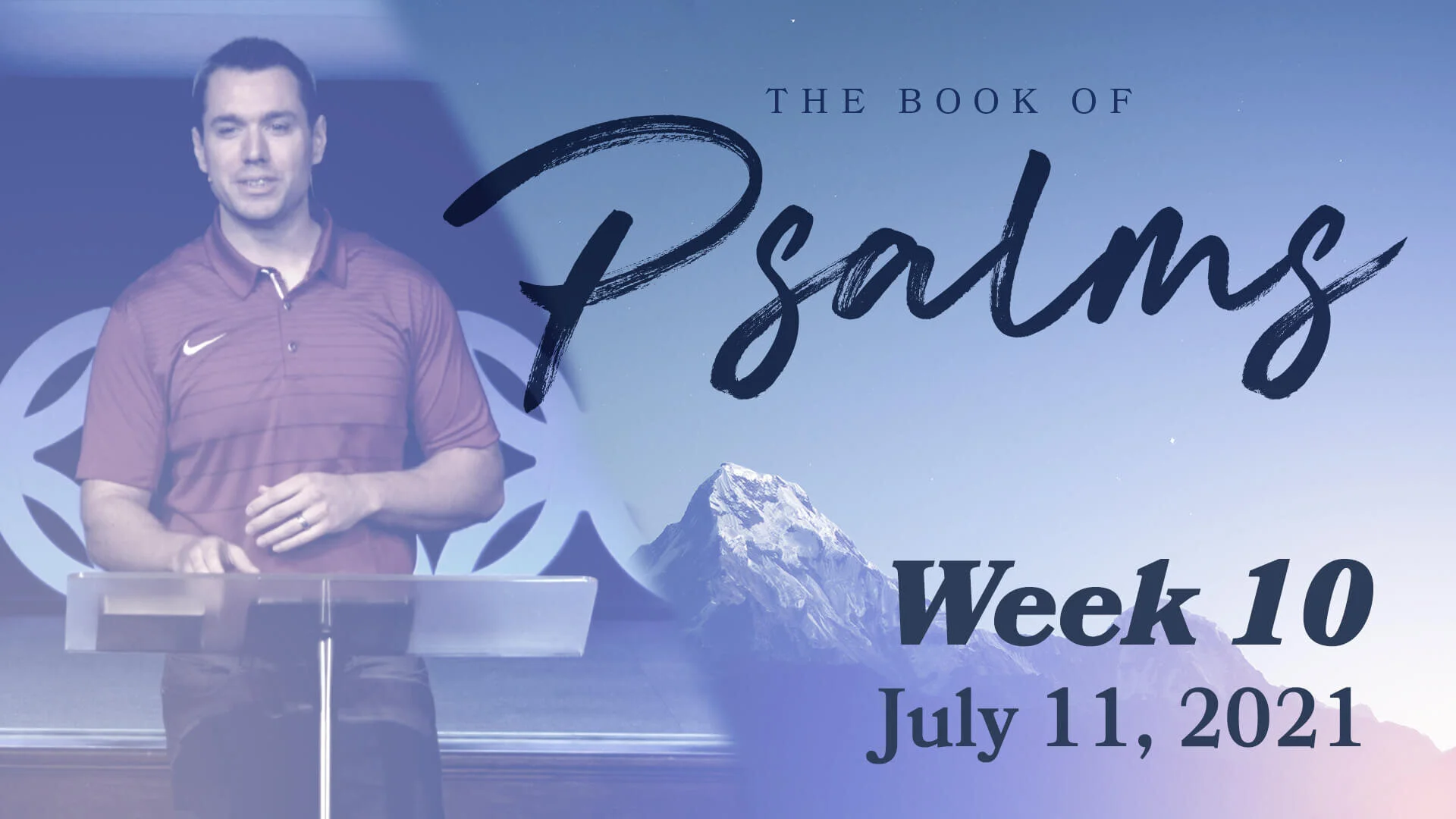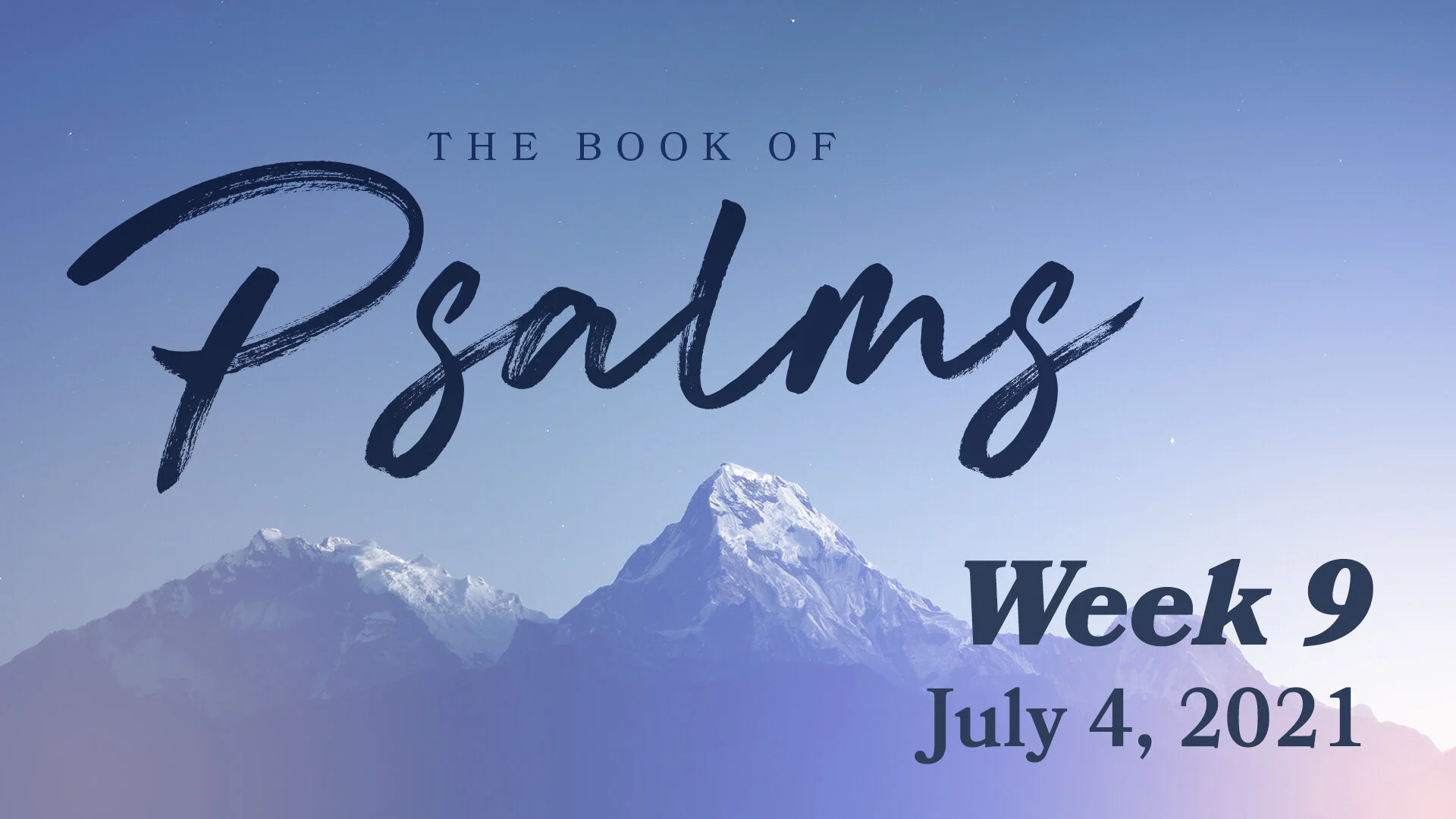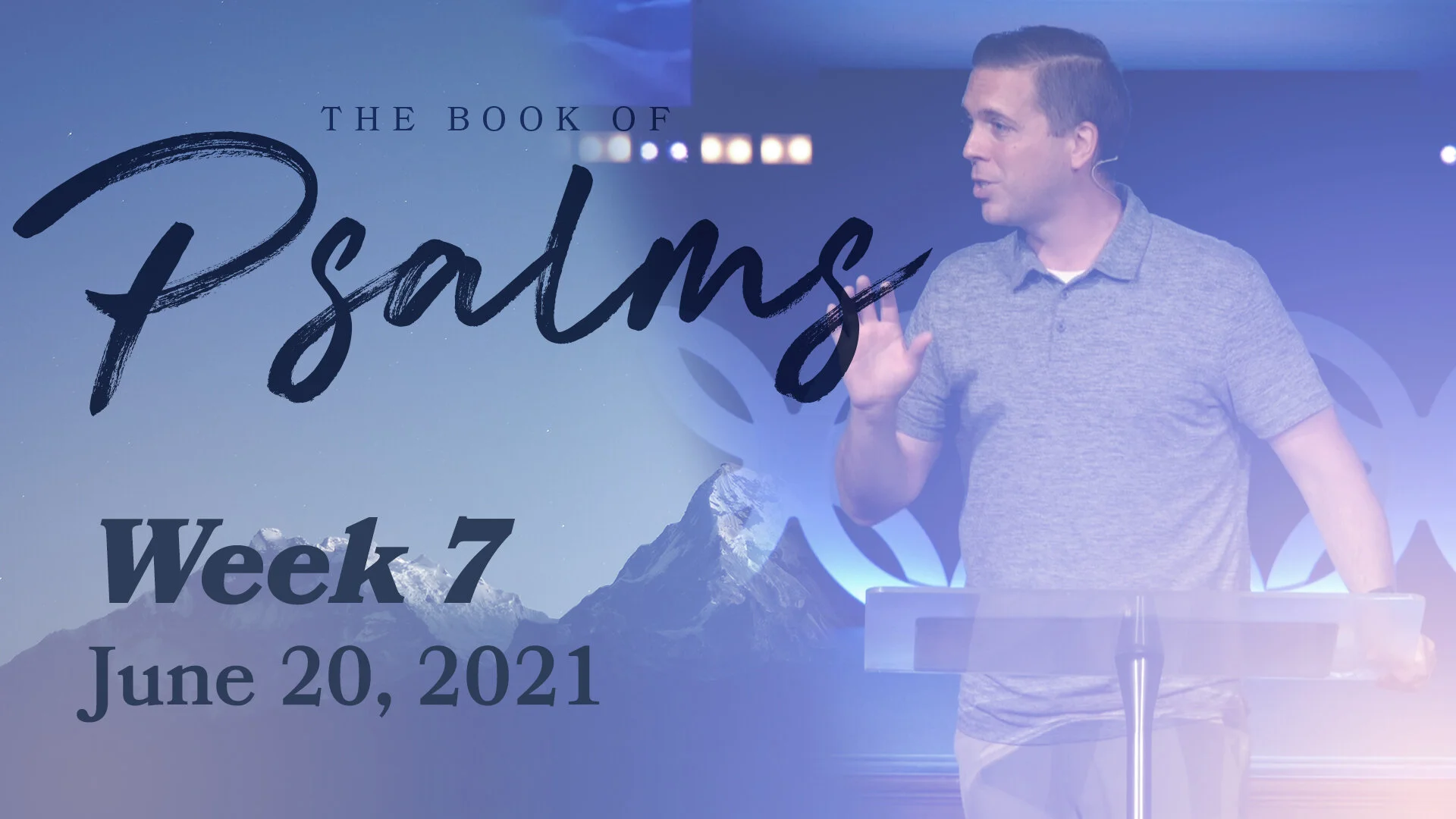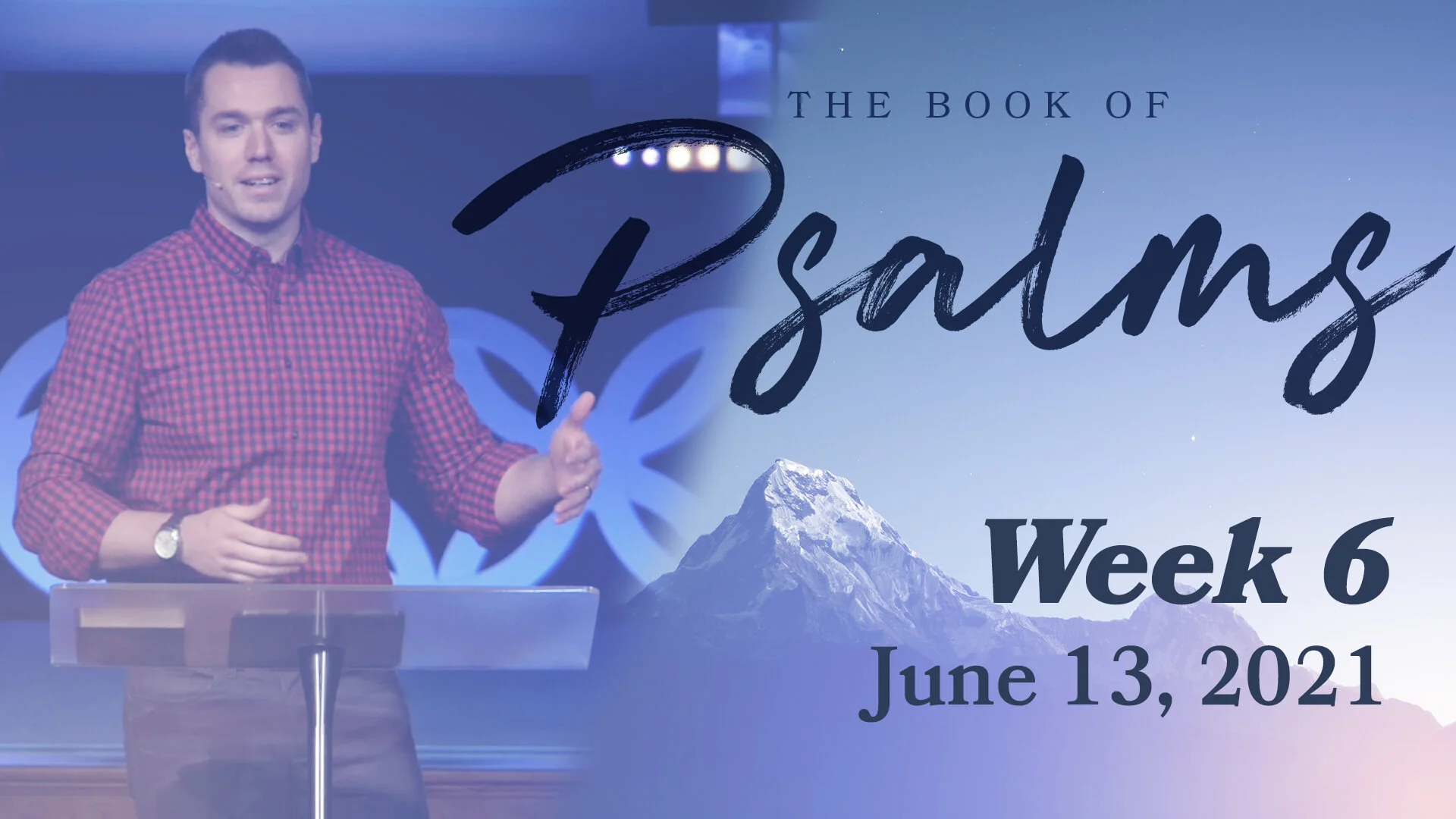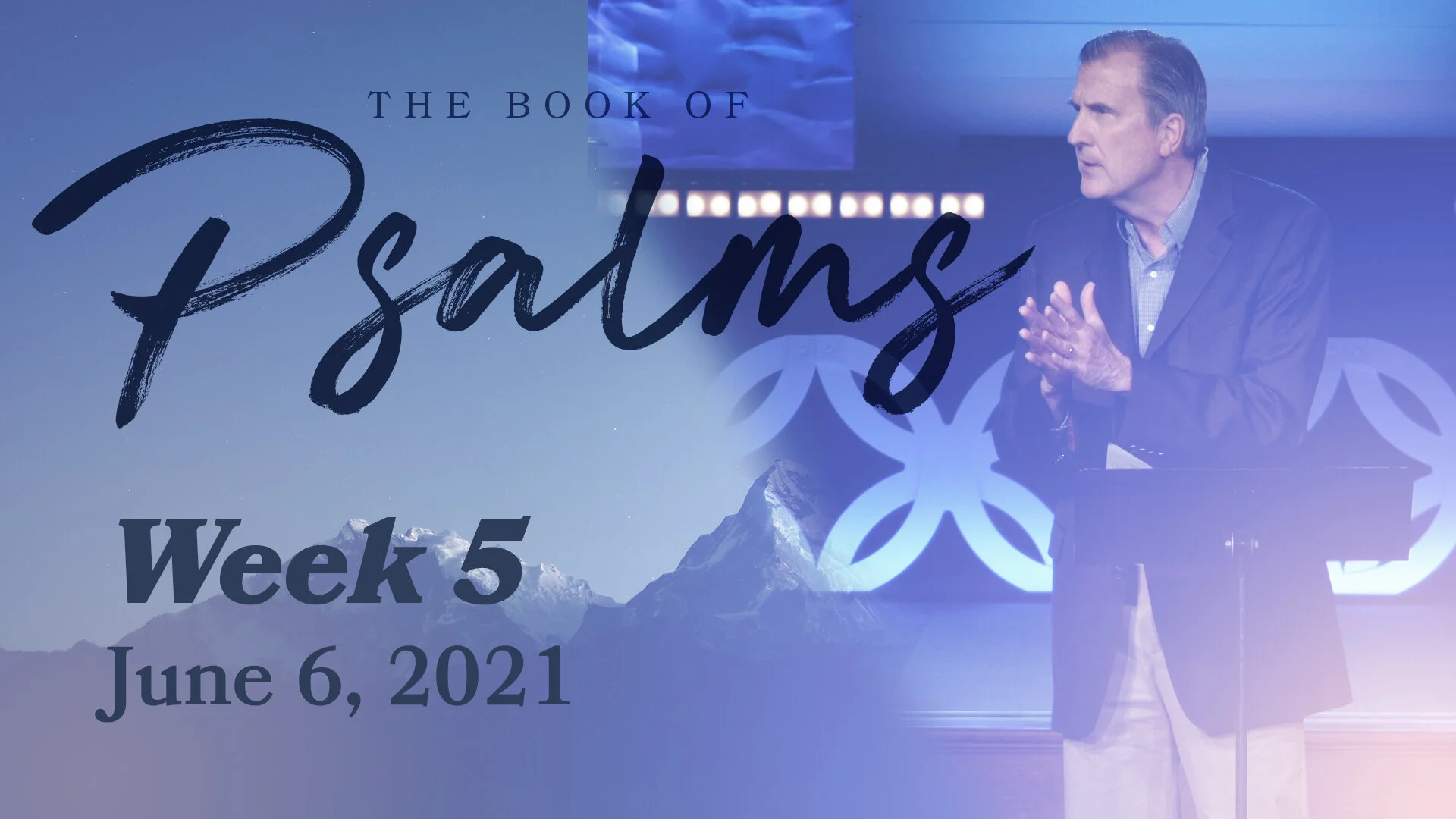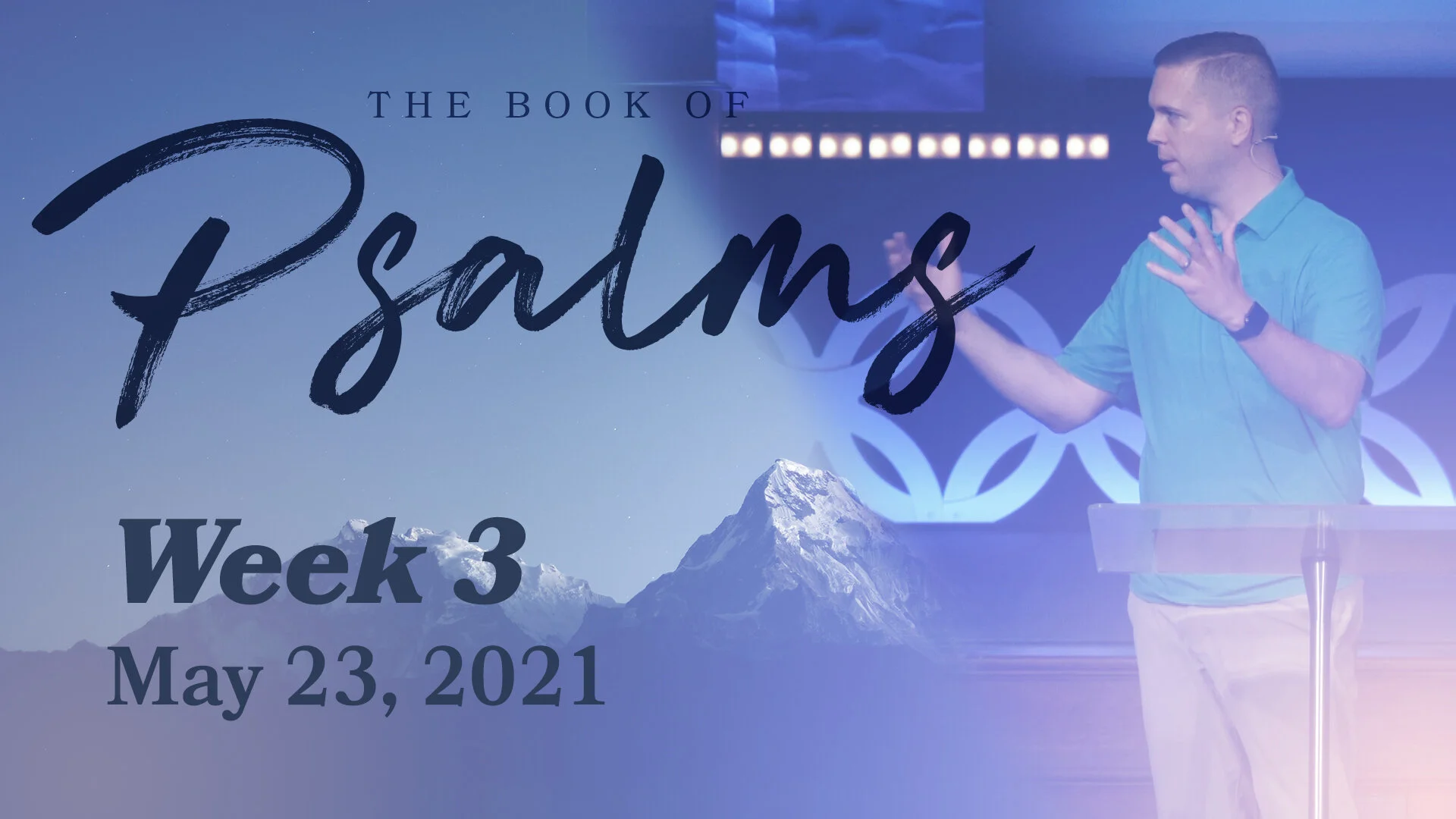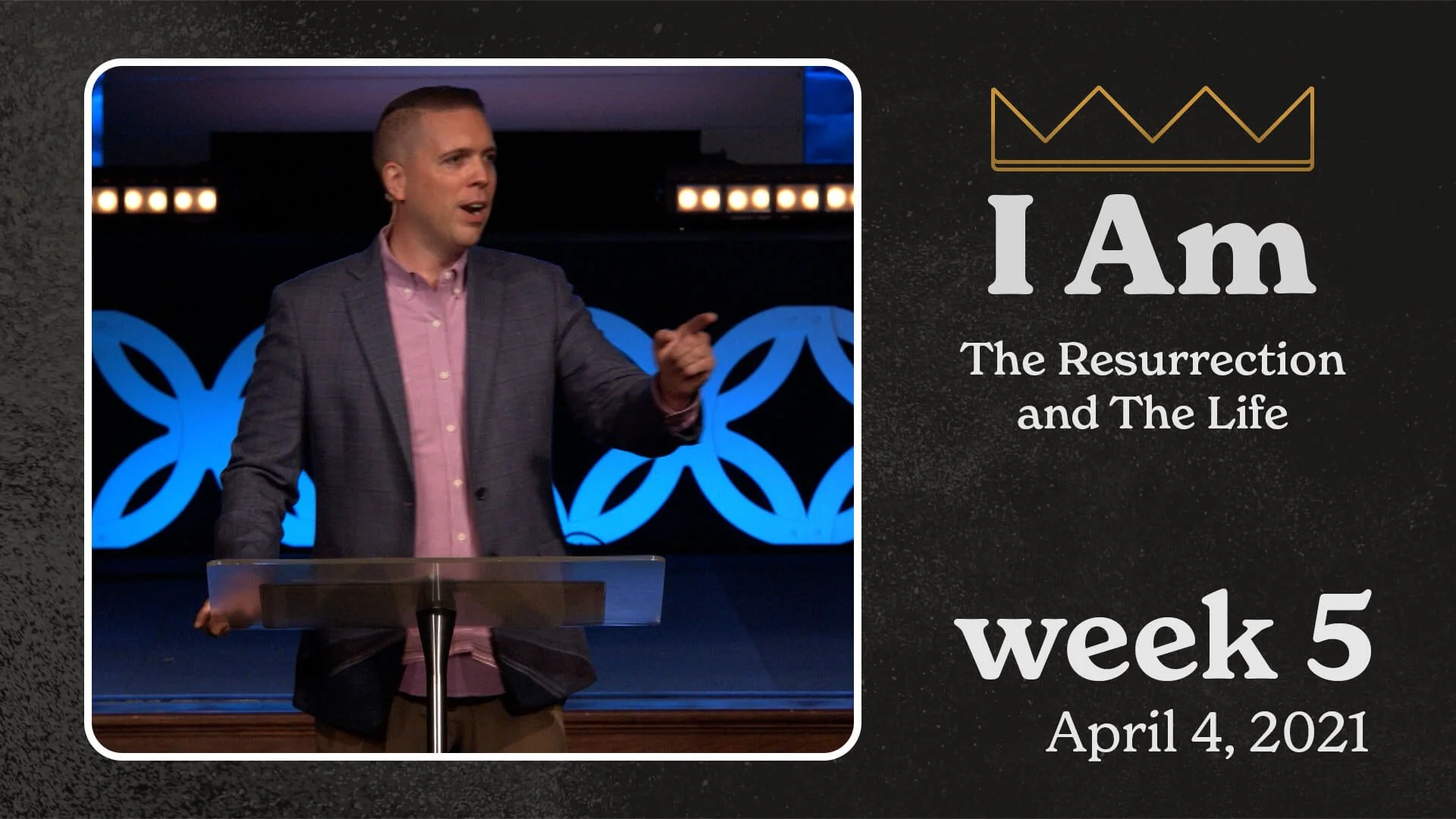For week 14 of our Psalms study, we are looking at Psalm 139. This chapter is both a courageous and dangerous prayer from David; he's asking God to search him, reveal his fears, and correct him. Leanne Benton challenges us to pray this same prayer in our own lives.
Read MorePsalm 121 is a "Song of Ascent", sung by families and pilgrims on their way up the hill road to Jerusalem. It speaks to the protection and care we experience in God's presence. Adam Barnett shares from this chapter and asks us where we are placing our trust for help on the journey.
Read MorePsalm 100 packs an incredible amount of wisdom into a short chapter. These 5 verses give a picture of how we are called to enter into God's presence and worship in response to His incredible goodness. Adam Barnett shares how this psalm tells us to bring grateful praise to our God.
Read MorePsalm 91 focuses on the security we find in God's presence. It's easy to take comfort in that idea, but often we can forget our part in that relationship; actual trust. We have to actually trust in God in all things. Wopsle encourages us in Week 11 of our Psalms study to move from talking to trusting.
Read MoreIn Psalm 84, the psalmist describes the amazing feeling of being in the presence of God. They state that they would rather spend one day in God's courts, than spend 1,000 days elsewhere. But for us, the question is how do we develop this passion for God's presence? Dave Brown explores this question in week 10 of our study of the Psalms.
Read MoreIn Psalm 77, we read the prayer of Asaph, who is going through a dark period in his life. And as we read, we find him coming to God in truly honest prayer, searching after God's presence and help. Joe Scruggs explores this prayer and shares wisdom on moving through the dark times in our lives.
Read MoreIn 2 Samuel 11, we read the story of David and Bathsheba and of the murder of her husband Uriah on David's orders. Psalm 51 is David's response after being reprimanded by the prophet Nathan. Adam Barnett walks with us through this Psalm, which is one of the most graphic depictions of confession and repentance found anywhere in the Bible.
Read MorePsalm 46 paints a picture of a world in chaos, but with the promise and hope of safety in God. Adam Barnett reminds us of how the Psalm starts; God is our refuge and strength. That even amidst the chaotic world around us, His presence is our safe "base".
Read MorePsalm 27 contains four distinct messages about life and how we can seek to find peace amidst the hardness of life. In week 6 of our study of the Psalms, Dave Brown breaks down these messages and encourages us to wait on the Lord.
Read MoreThe imagery in Psalm 23 is of a deep and dependent relationship of the sheep to their shepherd. This ideal example of the relationship between ourselves and God cannot truly look this way without an abiding prayer life. Bill Clark returns to the pulpit for week 5 of our Psalms study to share some simple but profound thoughts on that prayer life.
Read MoreIn just 14 verses, Psalm 19 speaks to the glory of God, the power of God's law, and our response to God's goodness and love. To cover the powerful depth of this Psalm, we heard from Mark Cruz, Kayla Canfield, and Josiah Barkley as they each explore one of these themes.
Read MoreIn Psalm 18, we hear David crying out to God from the midst of distress. Through this prayer, we can take both comfort and challenge. Comfort in knowing that we can rest in God's presence, but the challenge to continually pursue that presence throughout our lives. Adam Barnett explores Psalm 18 in week 3 of our summer-long study of the Psalms.
Read MoreOur culture is one that is both pride based and shame based. Most of the time we are either elevating ourselves as God or thinking of ourselves as nothing. Psalm 8 speaks to both ends of that spectrum. In Week 2 of our study of the Psalms, Dave Brown unpacks this chapter and helps us to see that knowing our true place in God's presence is essential in seeing through the shame and pride based lies of the enemy.
Read MoreThe book of Psalms is a collection of powerful prayers, songs, and praises. It begins with a call to delight ourselves in God's law—His instruction. And it shows the divergent path we can take if we don't heed this call. Adam Barnett opens our summer-long study of Psalms by exploring these two possible directions of our lives and challenging us to seek that delight in God's word this summer.
Read MoreWe have instruction directly from Jesus, and from the example of the early church, that caring for the poor is our responsibility. Despite this clear instruction, the majority of people feel that those in poverty are solely responsible for themselves, and less than 10% feel any personal responsibility at all. Adam Barnett wraps up our series with a reminder of the role we are called to fill as followers of Jesus.
Read MoreThere are many movies that begin at the end of the story, and then go back to tell the story of how it got there. In week 3 of Let Justice Roll Down, guest preacher Josef Rasheed examines how Revelation 7:9–10 describes a community of equality and then challenges us to see that this community doesn't start in heaven, but right here on earth with us.
Read MoreIn the early church, the care of widows and orphans was designated to the church. In the centuries that have passed, that has not changed. We are called to care for those vulnerable and be the hands and feet of Christ. This is how we are to "do justice". In week 2 of Let Justice Roll Down, Adam Barnett shares from the book of James and expands on what caring for the widow and the orphan can look like.
Read MoreIn the book of Micah, we find the prophet burdened for the sins of Israel and seeking God's favor and forgiveness. What he receives from God is the simple word that what the Lord requires is that we act justly, love mercy, and walk humbly with Him. Dave Brown explores this passage and shares the context of the time in which it was written to illuminate what happens when we sacrifice justice on the altar of safety, security, and peace.
Read MoreIn the story of Jesus raising Lazarus from the tomb, we are introduced to the doctrine of Resurrection when Jesus says, "I Am the Resurrection and the Life." At His own tomb, Jesus embodied that doctrine, defeating death itself in order to raise us to life in Him. Adam Barnett concludes our "I Am" series on Easter Sunday by sharing the joyful news that Jesus is our King.
Read MoreThere is so much power and deeper meaning behind Jesus' statement "I Am the Good Shepherd." It was intended to correct and challenge the religious elite of that time; and to comfort and encourage Jesus' followers then and today. We are sheep, and we have a Good Shepherd in Jesus. Dave Brown explores this deep and powerful meaning in week 4 of our I Am series.
Read More


